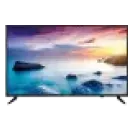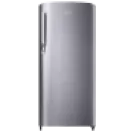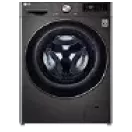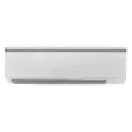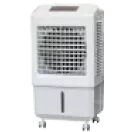When comparing
air conditioners, Samsung and LG are both recognised for their advanced technology and cooling solutions. Samsung air conditioners are equipped with digital inverter technology, providing rapid and energy efficient cooling, ideal for quickly lowering room temperatures in hot climates. Meanwhile, LG air conditioners are known for their dual inverter compressors, which ensure quiet operation and enhanced energy efficiency, making them perfect for long term use. Both brands offer smart features, including app control and voice commands, giving users greater convenience. Choosing between Samsung and LG depends on your specific cooling needs and budget.
Differences between Samsung AC and LG AC- Inverter technology: Samsung features digital inverter technology for fast cooling and efficient power consumption, while LG’s dual inverter compressors provide enhanced energy efficiency and quieter operation.
- Smart features: Samsung ACs excel in smart home integration, offering seamless control with devices like Alexa and Google Assistant. LG, on the other hand, focuses on energy saving smart features that automatically adjust cooling based on room conditions.
- Cooling speed: Samsung ACs are designed for quick cooling, ideal for rapidly cooling down a room. In contrast, LG ACs offer a more consistent cooling experience, perfect for maintaining comfortable temperatures over long periods.
- Air purification: LG ACs often come with advanced air filtration systems, which are particularly beneficial for improving indoor air quality. Samsung focuses more on airflow optimisation to ensure even cooling throughout the room.
- Price: Samsung ACs tend to be priced slightly higher due to their smart features and rapid cooling technology. However, LG offers competitive pricing with energy efficient models that provide excellent value. For example, a Samsung air conditioner might cost more for premium features, while an LG air conditioner could be more affordable for energy saving models.
Side by side feature comparison of Samsung AC vs LG AC| Features | Samsung AC | LG AC |
| Inverter technology | Digital inverter | Dual inverter |
| Smart connectivity | Seamless smart home integration | Energy saving smart features |
| Noise level | Moderate noise level | Quiet operation |
| Cooling speed | Fast cooling | Balanced and consistent cooling |
| Air purification | Focus on optimised airflow | Advanced filtration systems |
If you're looking for budget friendly cooling options, explore a range of
ApCs under Rs. 20,000 that offer great value without compromising on performance.
Samsung AC vs LG AC: In depth analysis of cooling efficiency, smart features, and energy consumptionWhen it comes to cooling efficiency, Samsung and LG take different approaches. Samsung’s digital inverter technology allows for rapid cooling, making it perfect for larger spaces or areas that require quick temperature drops. Its energy saving features also help reduce electricity consumption, especially in extremely hot regions. In comparison, LG’s dual inverter compressor provides more stable, consistent cooling with a focus on long term energy savings. This makes LG ACs quieter and more suitable for bedrooms or quiet environments.
In terms of smart features, Samsung offers seamless integration with smart home systems, enabling users to control their AC through voice commands and mobile apps. LG focuses more on intelligent energy management, with features that automatically adjust cooling based on room occupancy and external temperatures. Both brands perform well in energy efficiency, but LG has an edge due to its dual inverter technology. For smaller rooms, a
1 ton window AC from either brand can be a cost effective solution that balances performance and energy use.
